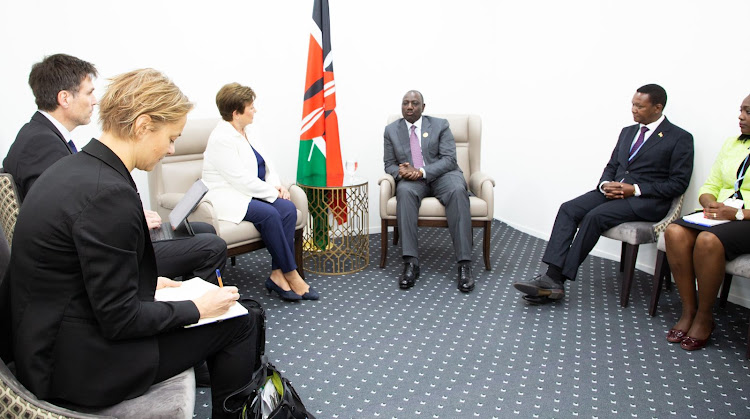Polygamous men will have to bear a heavier financial burden under the new Social Health Insurance Fund (SHIF) to support their families in the insurance scheme.
Under the SHIF regulations, contributors will be required to make separate payments for each individual spouse.
As per the regulations outlined in the Act, polygamous men (with two wives) are classified as having two households and required to each pay for the deduction of 2.75% on gross pay as insurance.
Officials from the Health Ministry, appearing before the joint Parliamentary Committee on Health on Tuesday, February 27, found itself at odds with the lawmakers regarding the classification of men with two wives as having two households, irrespective of the number of dependents involved.
One significant issue highlighted during discussions by the National Assembly Departmental Committee on Health on SHIF concerned the transition from individual to household memberships.

This transition potentially places domestic servants in dual households, necessitating clarity to avoid redundancy.
The Lawmakers raised concerns about the regulations neglecting the constitutional right to polygamous marriage, while also pushing for regulatory changes to ensure that polygamous marriages follow the same deduction criteria as monogamous counterparts.
Also Read: 5 Questions & Answers on New Health Fund Replacing NHIF
Polygamous Men to Raise more on SHIF
“You are actually going against the marriage laws of Kenya that permit polygamy. If you treat a household with two wives as two households, it is double jeopardy. Don’t run away from the definition that wife is in singular…. spouse does not mean it is one spouse,” Julius Sunkuli, a member of the committee said.
Senate Health Committee chairman Senator Jackson Mandago asked why the ministry used spouse, instead of saying an extra wife.
“What we need to say is there is no extra spouse, but rather individuals, will contribute for every spouse.
“The whole point is this contribution. We need to get the right language on the act and the regulations,” said Mandago.
The Health Ministry, however, stood by the regulations, emphasizing that the Act’s goal is to establish fairness among beneficiaries and guarantee that every Kenyan has access to medical coverage.
“Benefits and contributions march. Each of you look at it this way, you still pay school fees for children sired with different wives,” MoH official Abdi Mohamed said.
Concerns Raised on the Regulations
The lawmakers also raised concerns over immediate removal of a spouse from the cover and want the period extended to cater for situations where a spouse is expectant.
“It should not be immediately because what if the wife that you are removing is almost giving birth…give them at least six months to have a budget,” Igambangombe MP Patrick Munene said.
Also Read: Govt Sets Deadline for Kenyans to Register Under SHIF
In addition, the committee asked for an explanation of a household as listed in the new health regulations.
According to the Social Health Insurance Act, 2023, a household is defined as a social unit comprising of an eligible contributor, whether contributing by self or paid for, and their beneficiaries, or who share the same socio-economic needs associated with consumption and production.
Kenyans will start contributing to the new health scheme from July 1, 2024.









































































